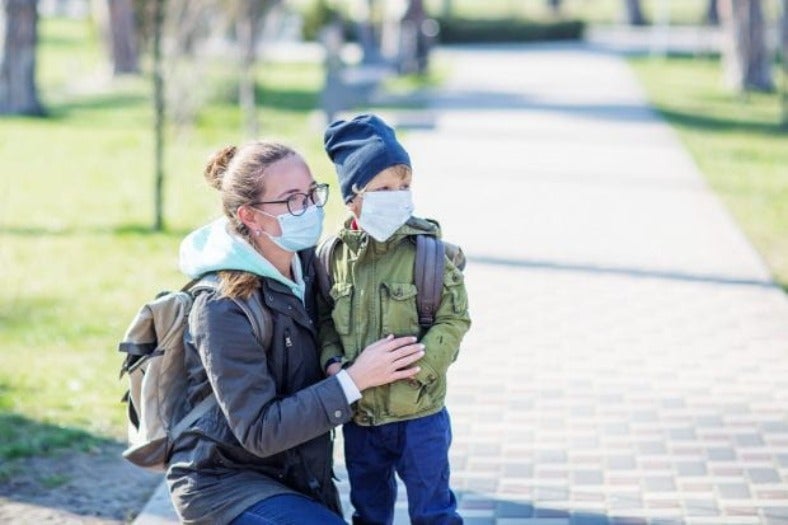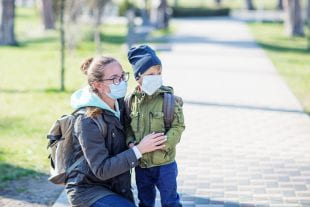The COVID-19 pandemic may irreversibly change the life course of millions of children in the United States, but long-overdue measures can be taken to help them reach their development potential, according to an expert from Rice's Baker Institute for Public Policy.
Quianta Moore, the institute's Huffington Fellow in Child Health Policy, writes in a new brief that the pandemic has exposed vulnerabilities in America's child care and education systems. She explains that the U.S. has the worst child health outcomes among wealthy nations despite spending the most per capita on their health care.
“Additionally, American children underperform academically — one measure of cognition, memory, language and problem-solving skills — compared to children in other advanced, industrialized nations,” she wrote. The brief is part of the Baker Institute's policy recommendation series for the Biden administration.
Early childhood experiences directly impact those "and a host of other critical skills necessary for a nation’s workforce to be competitive in a global market," Moore writes. Between losing family members, income and access to schools or child care centers, she argues, the pandemic has created a “trifecta” for many families that will negatively impact their children's long-term development.
“Multiple factors influence developmental outcomes during early childhood, such as health, nutrition, early learning, parenting style, safety and security, all of which interact with one another and create opportunities for intervention,” she wrote.
Moore recommends several actions the Biden administration can take, such as providing support for private-public pre-K partnerships.
“Federal funding to incentivize private investments in early childhood through tax incentives and a federal matching program would create a ripple effect throughout the country and thereby increase opportunities for early learning throughout the U.S.,” she argues.
Limited access to child care or early childhood education because of low availability or high cost limits the number of Americans who are able to benefit from these interventions.
“For instance, the United States ranks 28th in the percentage of 4-year-olds enrolled in preschool despite the plethora of research demonstrating the importance of preschool and early learning for development and academic success later in life,” she wrote.
With the pandemic highlighting such inequities, Moore argues that the U.S. has an unprecedented opportunity to improve the developmental potential of its children.
“The time for bold, decisive action is now,” she wrote.
-30-
To schedule an interview with Moore, or for more information, contact Avery Franklin, media relations specialist at Rice, at averyrf@rice.edu or 713-348-6327.
Related materials:
Brief: https://www.bakerinstitute.org/media/files/files/358fb295/bi-brief-012621-chb-next-generation.pdf.
Presidential recommendations series: https://www.bakerinstitute.org/recommendations-2021/.
Moore bio: https://www.bakerinstitute.org/experts/quianta-moore/.
Follow Rice News and Media Relations via Twitter @RiceUNews.
This news release can be found online at news.rice.edu.
Founded in 1993, Rice University’s Baker Institute ranks as the No. 1 university-affiliated think tank in the world and the No. 1 energy think tank in the world. As a premier nonpartisan think tank, the institute conducts research on domestic and foreign policy issues with the goal of bridging the gap between the theory and practice of public policy. The institute’s strong track record of achievement reflects the work of its endowed fellows, Rice University faculty scholars and staff, coupled with its outreach to the Rice student body through fellow-taught classes — including a public policy course — and student leadership and internship programs. Learn more about the institute at www.bakerinstitute.org or on the institute’s blog, http://blog.bakerinstitute.org.


